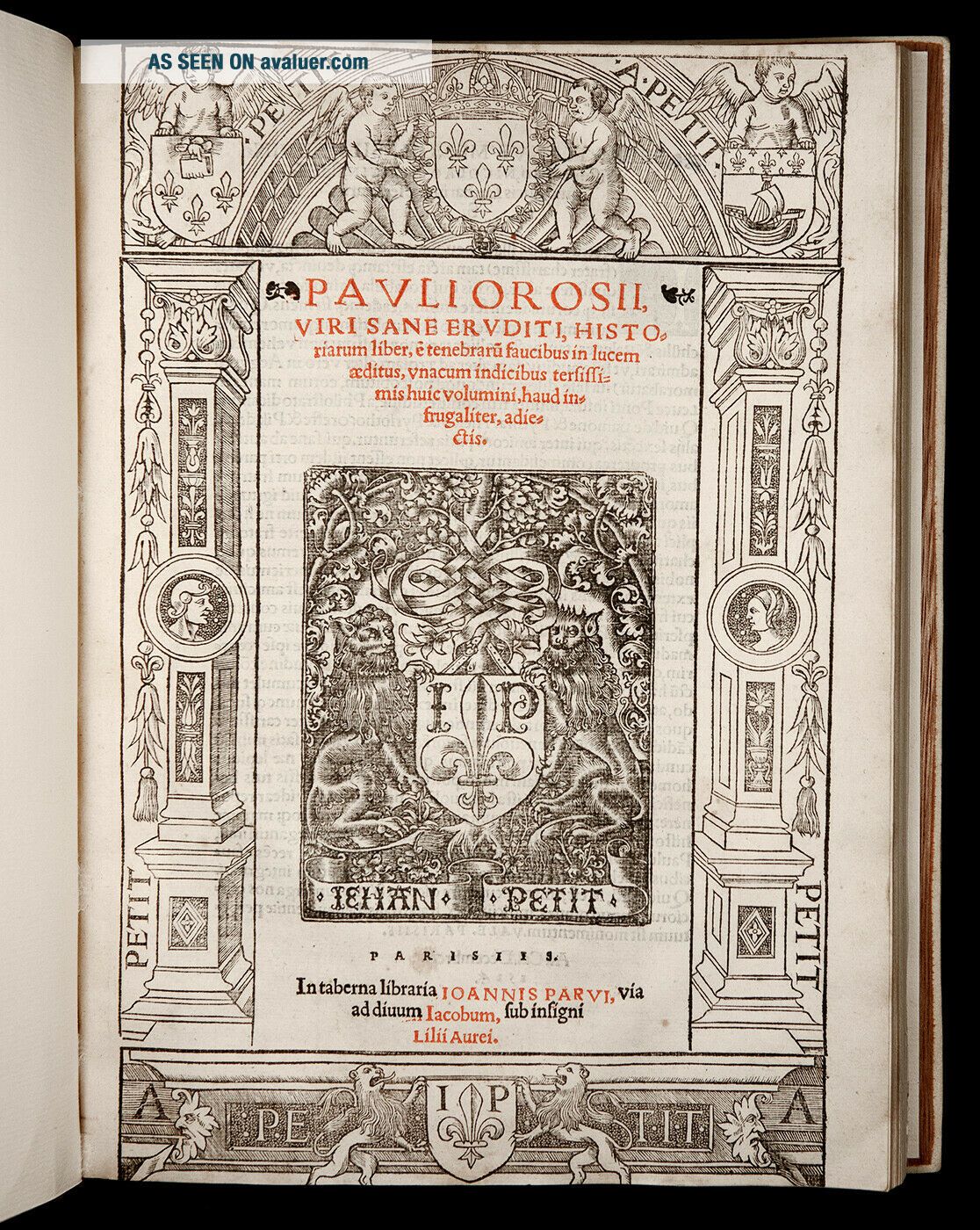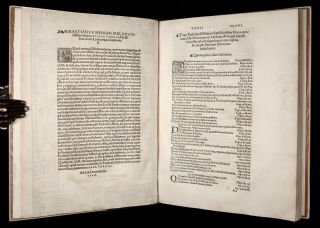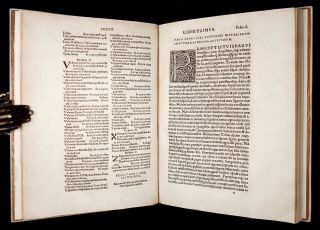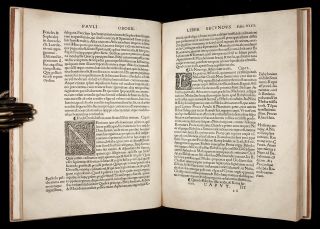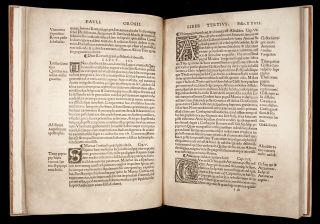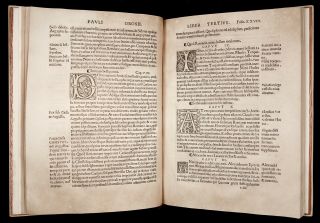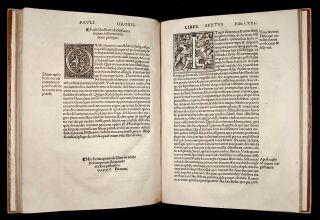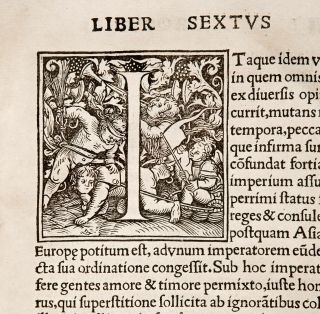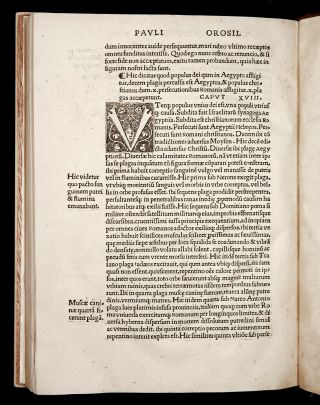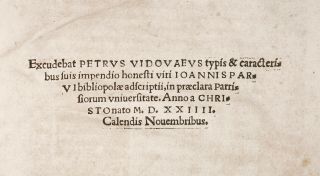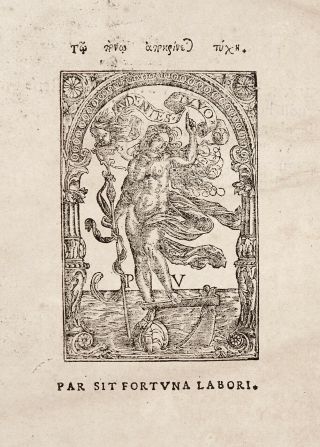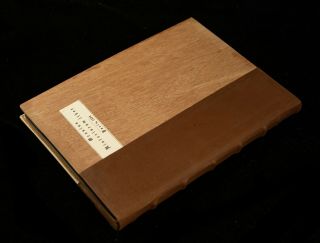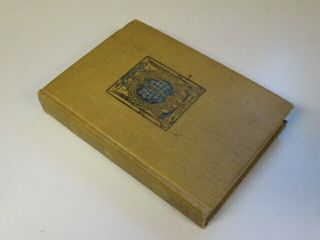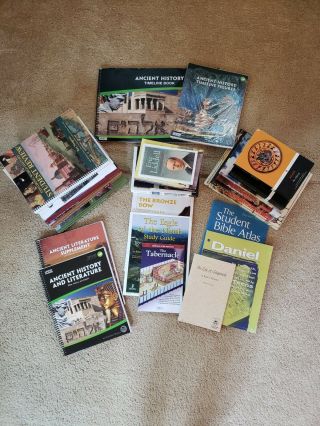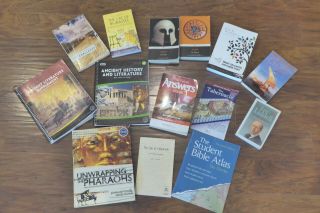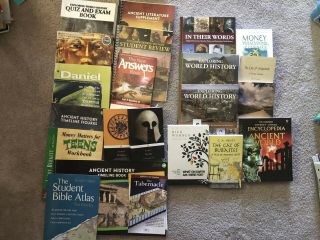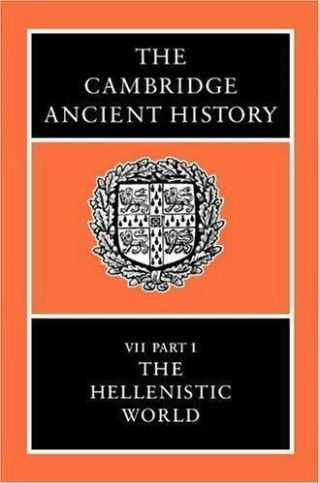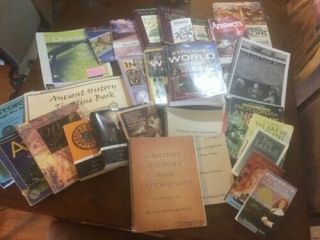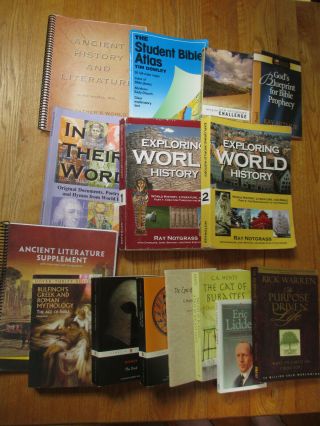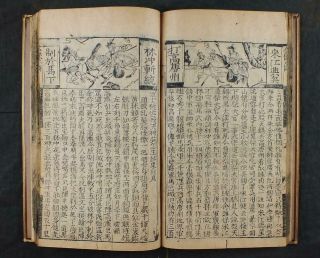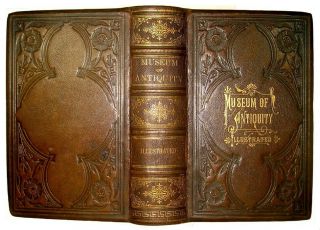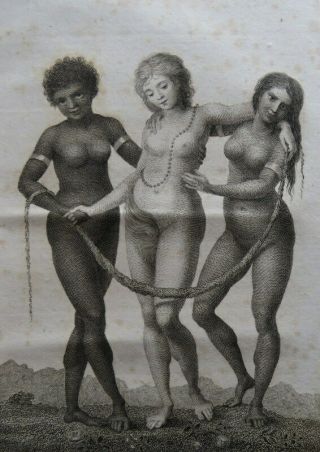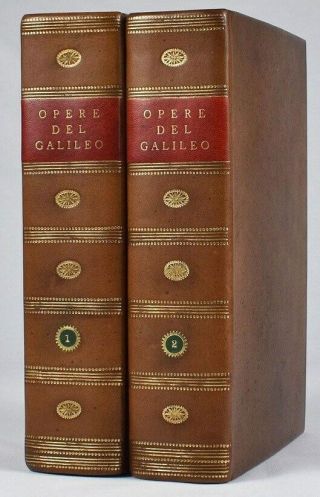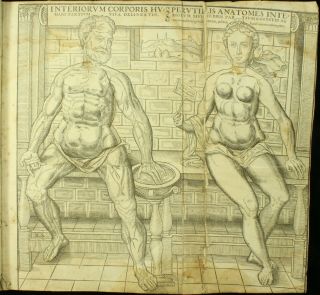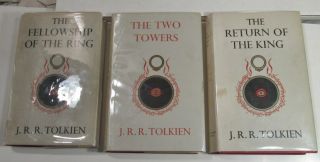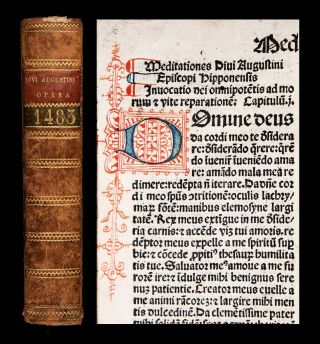1524 OROSIUS History Against Pagans WORLD CHRONICLE Ancient ROME GREECE BABYLON
Item History & Price
Printed in Paris by Pierre Vidoué for Jean Petit, 1524.Text in Latin. Edited by Sébastien Mengin (first edition thus).A rare Paris post-incunable edition of Orosius's popular chronicle, Historiae adversus paganos, important as the first world history written by a Christian. Paulus Orosius was 5th-century Spanish theologian wrote his Histories against the P...agans partly at the behest of St. Augustine. It is a universal history written to counter belief prevalent among non-Christians of his time that disasters which had befallen civilisation were the result of the gods, angry with worshippers turning to Christianity. Orosius shows that disasters happened in all ages, and that contemporary disasters were rather the result of the sin of unbelievers. It became a standard history text in the Middle Ages, and it is important in the transmission of the legend of Alexander the Great (cf. Ross, Alexander Historiatus, pp.74-74).Paulus Orosius (ca. 375 - ca. 420 AD), was probably born in Braga in northwestern Portugal, known as Bracara Augusta under the Roman Empire. As a priest, Orosius went to Hippo about 414, where he met St. Augustine. In 415 Augustine sent him to Palestine, where he vigorously opposed Pelagianism. At a synod summoned that year by Bishop John of Jerusalem, Orosius accused Pelagius of heresy. Early in 416 he returned to Augustine, who asked him to compose his masterpiece - Historiarum adversus paganos libri VII - intended as a historical apology of Christianity.Orosius's Historiae adversus paganos was written in response to Saint Augustine's express desire for a book focused on the pagan races, which would complement his “City of God”.By writing a universal history of the calamities that have happened to mankind, Orosius wanted to show that the world has improved since the introduction of Christianity rather than declined as others had argued. In response to those who pointed to contemporary disasters, he simply argues that previous disasters occurring before Christianity were much worse. The Historiae adversus paganos was the first attempt to write the history of the world as a history of God guiding humanity. Throughout the seven books that comprise his History, Orosius introduces several new methods and he also uses others that pick up on the traditional methods of Graeco-Roman historiography. It should be pointed out that Orosius never offers a negative image of the Pagans, in this way he is being true to the traditions of the Graeco-Roman historians of that time, who always tried to give a positive impression of their "enemies".The universalist nature of Orosius's work is perhaps its most notable aspect. Orosius uses the so-called "succession of the four world empires theory" throughout his work, which traced world history based on the premise that out of the ruins of one great civilization another arose. Therefore, his theory was based on four historical empires, Babylonia, pagan Rome, Macedonia and Carthage, with a fifth empire, that of Christian Rome as the inheritor of all these. In fact, during the narration of their histories the four empires develop in the same way and there are a number of striking parallels between them that are markedly different from Rome, which Orosius praises. Orosius's basic innovation in dealing with the four empires theory was to introduce Carthage between Macedonia and Rome, which is pointed out by researchers as Orosius's defining feature.Orosius's History is notable for its Iberian/Spanish patriotism (or Hispanism). Orosius places special emphasis on the events that took place in Hispania. Examples of this tendency include several narratives of events in the “Histories”. It has even been pointed out that Orosius's narratives are sometimes used by the present day groups of Galician nationalists.Another remarkable aspect of Orosius's work is the importance he placed on geography. This is shown in his geographic description of the world in the second chapter of the first book of the Histories. Despite some vagueness and occasional topographical errors, it is notable that the Histories include a chapter on geography. This has lent an increased value to his work in modern historiography.The alleged falling out of Orosius and Augustine at the end of the former's life does not seem to have negatively effected the distribution and impact of his Histories. Orosius's History was viewed as success from virtually the time of their publication. His was considered to be one of the main works of Spanish historiography right up until the time of the Reformation. This success has, to a large extent, meant that his other works have also been conserved.
Historiae Adversus Paganos has been quoted by all kinds of author from Saint Braulio of Zaragoza to Dante Alighieri. Even Lope de Vega made Orosius a central character in his play The Cardinal of Bethlehem, which shows how long-lived his fame was. The book was not only widely quoted, it was one of the main scholastic books used by students of Ancient History throughout the Middle Ages.Bibliographic references:Schweiger II, 621; Palau 204373; Moreau III, 721; Pettegree, French Books, 81139; Panzer VIII, 88, 1433; Ebert 15250; Graesse V, 51.Physical description:Chancery Folio, textblock measures 27 cm x 19 cm. Rebound in modern quarter-leather over wooden boards (in period style), with a paper title-label on front cover.Foliated in roman numerals: [14], CXIII, [1] leaves (forming 256 pages).Collation: A6 B-C4 a-t6.
Collated and COMPLETE.Title-page printed in red and black within a fine woodcut architectural border, and with a large woodcut device of Jean Petit. Also with a fine woodcut device of Pierre Vidoué on verso of the final leaf with his initials PV and motto: Par sit fortuna labori..With numerous beautiful large ornamental, grotesque and historiated initials of different sizes, most metal-cut cribble ones, and with one superb and very large (11-line) woodcut initial 'I' at opening of Book VI depicting frolicking putti, one of which is playing trumpet.Preliminaries Include a dedicatory preface by the editor Sébastien Mengin addressed to his brother, Nicolas Mengin, the Secretary to the Duke of Lorraine (on verso of title), followed by an extensive Index.The text of the History opens with Orosius' prologue addressed to St Augustine.Final leaf t6 with colophon on recto and Vidoué's woodcut device on verso.Condition:Very Good antiquarian condition. Complete. Textblock with some intermittent browning, mainly light-to-moderate, but becoming somewhat heavier on a few leaves; nevertheless, text is perfectly legible throughout. Final (colophon) leaf t6 with a closed marginal tear (repaired) at the bottom (without any loss). In all, a solid, unmarked, well-margined example.
Please right-click on thumbnails below and choose "open image in a new window" option to see larger images.



